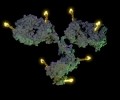Roche buys into gene therapies with $4.8bn Spark acquisition

This morning, Roche announced that it entered into an agreement to acquire gene therapy specialist, Spark Therapeutics for $4.3bn (€3.79bn).
Roche is prepared to pay a 122% premium of Spark’s closing price of last week to acquire its portfolio and noted that it expects the deal to complete in the second quarter of 2019. On the successful close of the deal, Spark will receive a further payment of approximately $500m, bringing the total value of the deal up to $4.8bn.
Spark, based in Philadelphia, US, currently has one commercial product, Luxturna (voretigene neparvovec), and four drug candidates in clinical trials.
In total, Spark has three candidates in late-stage clinical trials for haemophilia, with SPK-9001 and SPK-8011 in Phase III trials currently for haemophilia A and B, respectively. It also has SPK-8016, a gene therapy for haemophilia A with inhibitors, in Phase I/II.
The potential for these gene therapies to fundamentally change the haemophilia market, providing one-time therapies instead of regular treatment, was one of the reasons behind the purchase, according to Severin Schwan, Roche's CEO.
In a statement, he said, “Spark Therapeutics’ proven expertise in the entire gene therapy value chain may offer important new opportunities for the treatment of serious diseases. In particular, Spark Therapeutics’ haemophilia A programme could become a new therapeutic option for people living with this disease.”
Roche currently possesses Hemlibra (emicizumab) within its haemophilia portfolio, which was approved at the latter end of 2018 by US and European regulators, but still managed to generate full-year sales of CHF 224m (€197m).
Wider than haemophilia
Spark will add Luxturna, a one-time therapy for inherited retinal dystrophy, to its retinal disease portfolio. Alongside this treatment, Spark also has SPK-7001, which is a treatment for choroideremia and in Phase I/II trials, as well as being in the discovery stage for Stargardt disease – both retinal disorders.
Spark also has candidates for Pompe disease and various discovery-stage projects for central nervous system disorders.
Question of pricing
As it acquires Spark’s gene therapy portfolio, it also inherits the contentious point of the pricing of such products.
When we spoke to Mark Toms, CSO of Novartis UK, he told us that such one-time therapies may require a “rethinking of how our healthcare system[s]”.
Novartis holds the ex-US rights to Luxturna, which is currently priced at $425,000 per eye in the US, and told us that it may take until 2020 for patients in the European Union to gain access to the treatment.
As further gene therapies move towards commercialisation, Roche will not be the only company to face the question of pricing.











